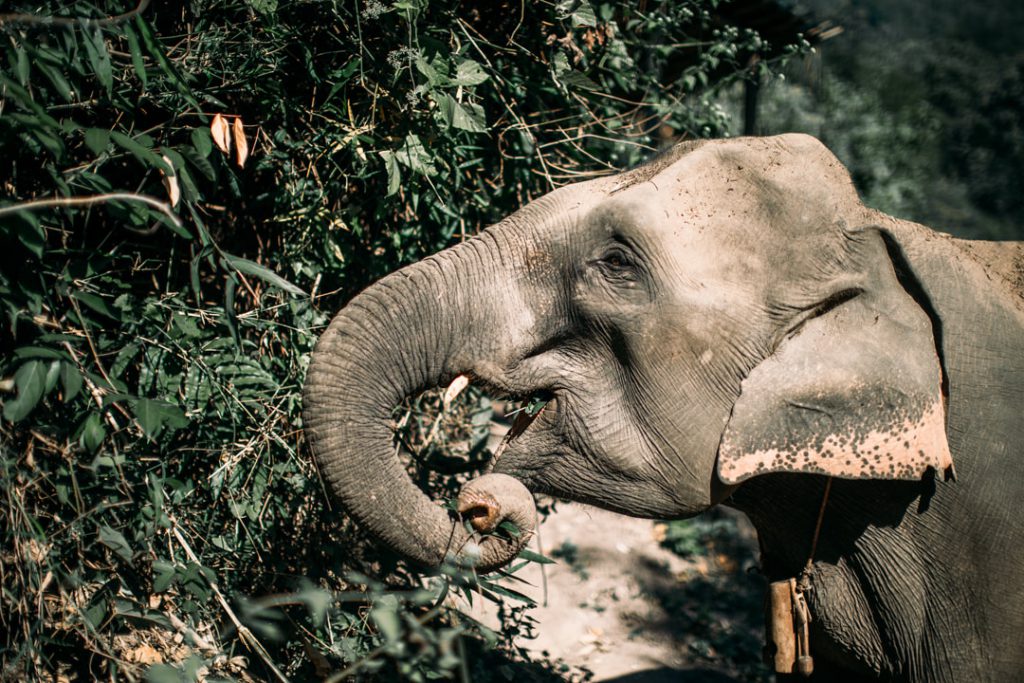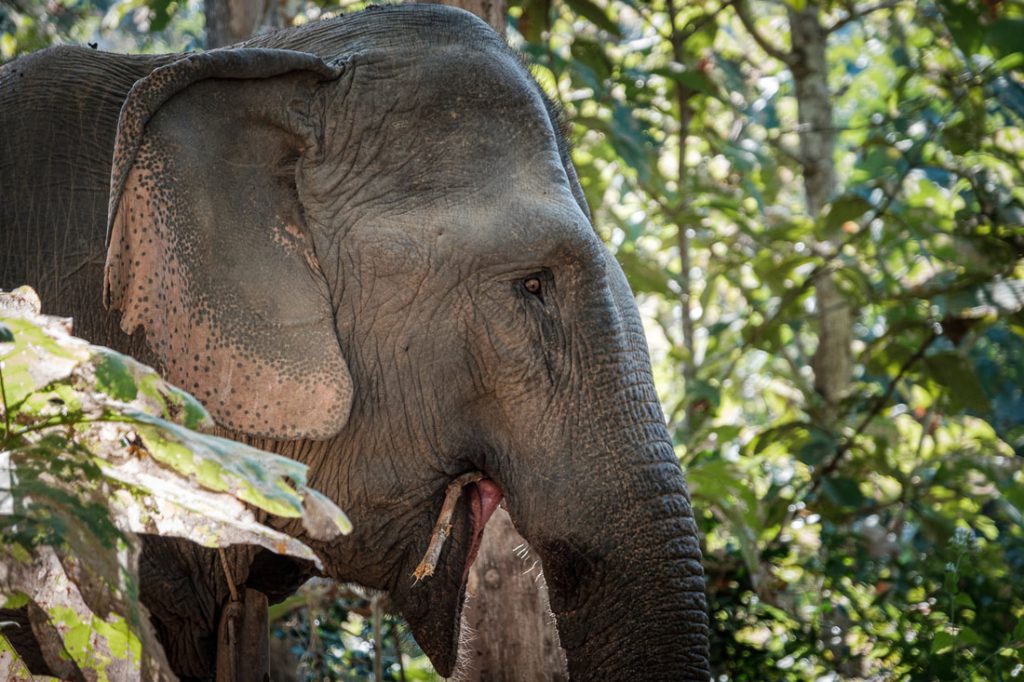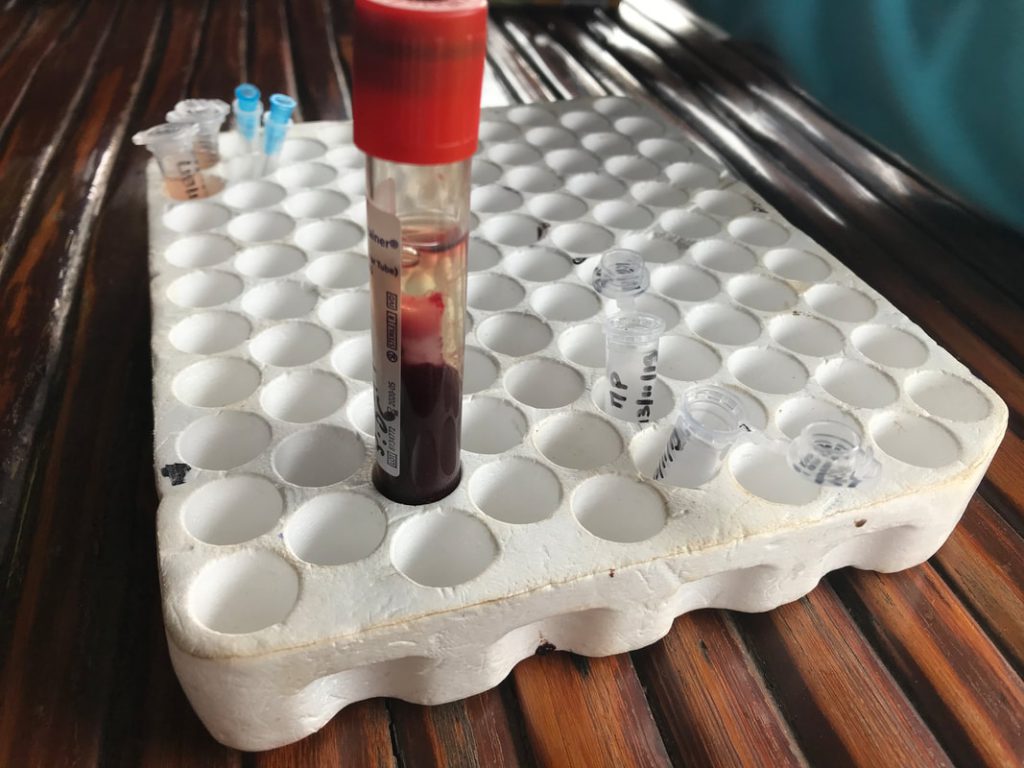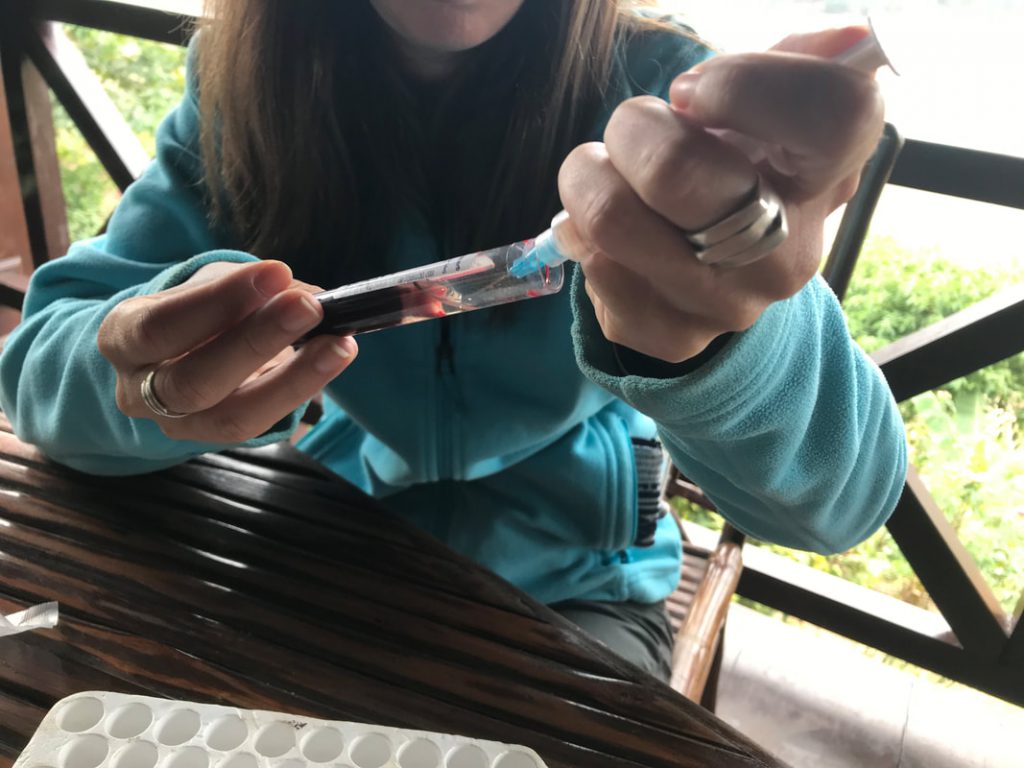According to experts, if things are left as it is now, the species of Asian elephant will disappear in the years to come. At the Mekong Elephant Park, this is a fact that we must not and cannot accept, as it would be a terrible failure for humanity. Throughout history and religions, elephants have always evolved with men, and in some Asian ethnicities, they have always been an important part of their identity, and a strong symbol for Asia as a whole.
Let us remind ourselves of what is killing the elephants today in Laos: their use for logging (mainly illegal). This practice is dangerous for the Lao primary forest which is gradually disappearing, but also for the elephants that injure themselves and are left abandoned, which results in them dying of exhaustion. The creation of the Mekong Elephant Park is the first step in Wendy’s and our staffs’ elephant conservation mission. We allow mahouts to earn reasonable incomes, to provide convenient environmental conditions of health and safety to our elephants but also for themselves.
Currently in Laos, there are more elephants dying than calves being born: 10 deaths for every birth. Therefore, the second mission that Wendy and our staff took, as part of the Mekong Elephant Park’s conservation project, is to create new generations of Asian elephants. We launched this project with two of our female elephants in the age of breeding:


When it comes to breeding elephants, two main difficulties present themselves:
- The short and complex reproduction cycle of female elephants
- The lack of knowledge of the precise age of the elephants that can affect their chances to breed
It is essential for the Mekong Elephant Park, in order to succeed in this project, to keep a close eye on Mae Ping and Mae Bounma’s signs of entering their reproduction cycle. Wendy, our Operation Manager, has been professionally trained in taking blood samples of our female elephants, which will then be sent to the Elephant Conservation Center (ECC), to track and read their hormonal pattern. You can see the blood sampling process in the video below:
Let us also remind that in the early stages of such a reproduction project, it is important to acclimate the elephants to blood sampling. During 6 months before even the use of a needle, the mahouts familiarized their elephants of getting their ears touched so that they adapt to such a practice without being afraid and that such gestures become a routine. It was also necessary for them to feel secure within the checkup area and therefore our elephants were taught to head there without fear on a regular basis.
Wendy now always makes sure to make this process as quick as possible for our elephants. The blood is then transferred to a tube and after 1,5 hours, the serum will separate from the blood. Wendy will then transfer the serum to a small tube, which will then be stored in the freezer waiting to be sent to ECC for analysis.


Another important factor in this project is to familiar Mae Ping and Mae Bounma with our male elephant: Kham Khoun. It is a usual problem for female captive elephants to be unused to be in contact with male elephants, and therefore lack the social training in sexual courtship.
At the Mekong Elephant Park, our female and male elephants are put together in their natural habitat, so they will get used to each other’s presence, which hopefully will result in our females being more comfortable presenting themselves to male elephants when they enter their production cycle. In the video below, you can see Kham Khoun and Mae Ping hugging each other, as well as Mae Ping presenting her backside to Kham Khoun. This is a really good news that she feels comfortable to interact with him in that way.

